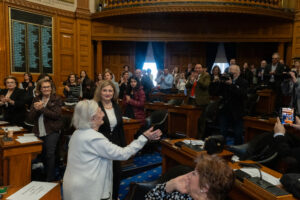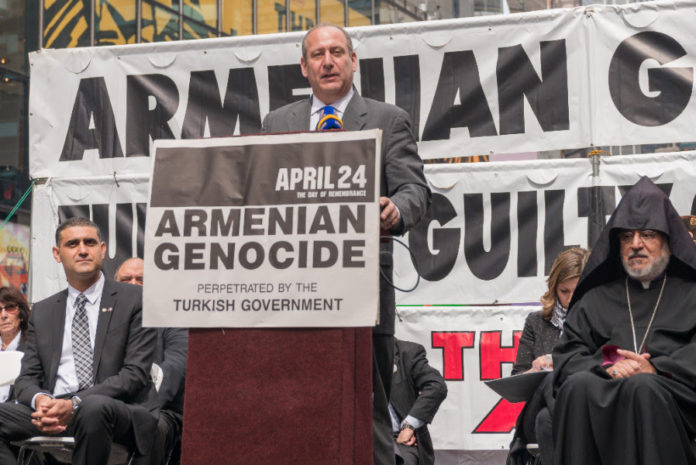NEW YORK – David L. Phillips has been going around the country, and, in fact, a good part of the world, speaking out against the dictatorship of Turkish president Recep Tayyip Erdogan. He just published a book on this issue (see last week’s Mirror-Spectator), and recently has even spoken at Armenian Genocide commemorative events. He has a long history of working both in academia and in advisory positions for the US State Department on human rights issues and Track II diplomacy, including on the Armenian Genocide.
Phillips entered this career path in part due to his family background. He said, “My family came to the US at the turn of the twentieth century from Eastern Europe as refugees. Our shtetl in Minsk was burned to the ground, and my ancestors fled and came to New York to build a new life. They set up a business which turned into a successful shirt manufacturer and clothing conglomerate [the Phillips-Van Heusen Corporation].”
Phillips recalled that “One of the things that was always a tenet in our family required giving back and remembering our humble origins. Each successive generation was involved in some kind of humanitarian endeavor. My great-grandfather founded Beth Israel Hospital in New York, my grandfather was principally involved in the School of Nursing, and my father founded the American Jewish World Service.”
Consequently, Phillips said, “I was raised with a strong conviction to do good in the world. I was the first generation not to go into the family business, so that created opportunities for me to work fulltime helping others.”
Phillips studied political science and international relations in college, but he also studied Sanskrit poetry and got to know the Dalai Lama. He worked in India with Tibetan refugees, and, he said, these contacts helped awaken his humanitarian instincts. Since then, he said, “I have been committed to helping victims of violence, human rights victims, and those displaced, throughout my career.”
He was fortunate to have the means to act independently, and declared, “I am not really the kind of personality who works well in a bureaucracy.” He was interested in working with the US government, he said, because “I always believed that the US government is a force for good in the world, and by harnessing its capabilities in service of the greater good, I thought we could accomplish things in the world.”










